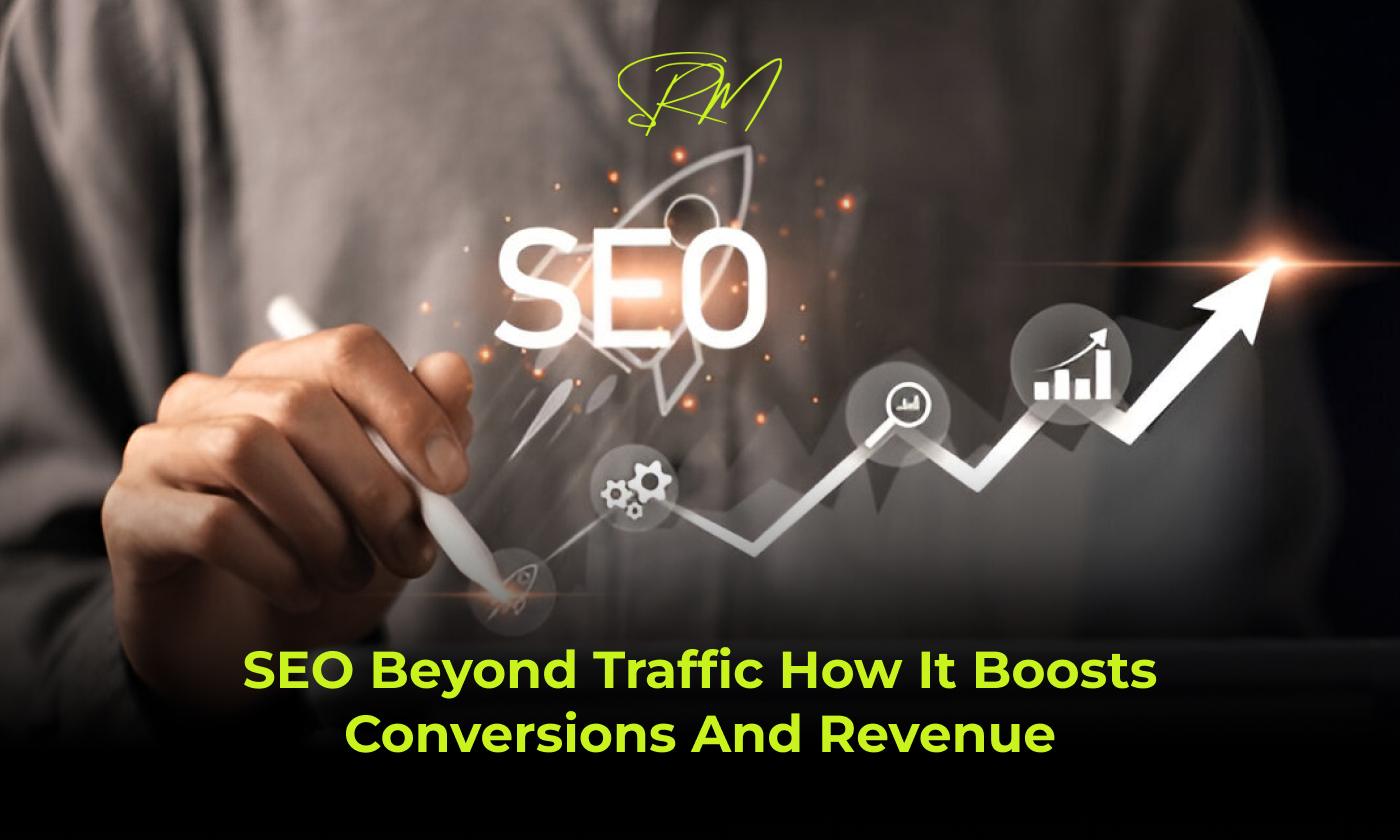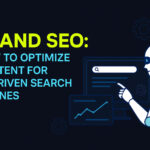
When most businesses think of SEO, they picture rankings, clicks, and website traffic. While traffic is crucial, it’s only the first step in a more significant journey. The ultimate goal of SEO is not just to attract visitors but to convert them into customers and drive revenue growth. A well-optimized website doesn’t just rank high on search engines; it enhances user experience, builds credibility, and turns prospects into loyal customers.
In this blog, we’ll explore why SEO is essential for business growth and how it directly impacts conversions and revenue.
Why Is SEO Important for Businesses?
SEO is a powerful digital marketing strategy that helps businesses achieve long-term success. Here’s why it’s essential:
1. Increases Organic Traffic
Organic search accounts for over 53% of website traffic. SEO ensures that your site ranks high for relevant keywords, bringing in highly targeted visitors actively searching for your products or services.
2. Enhances User Experience (UX)
Search engines prioritize websites that offer a seamless user experience. Factors like page speed, mobile responsiveness, and intuitive navigation contribute to better rankings and keep visitors engaged, reducing bounce rates.
3. Builds Trust and Credibility
Users trust search engines. Websites that rank at the top are perceived as more credible and authoritative. High-quality content, backlinks, and positive user interactions help establish trust with potential customers.
4. Targets High-Intent Users
SEO-driven traffic is highly qualified. Unlike paid ads, where visibility ends when the budget runs out, organic search brings in users with strong intent, increasing the likelihood of conversions.
5. Supports Other Marketing Channels
SEO complements other digital marketing efforts like content marketing, social media, and email campaigns. A solid SEO foundation makes it easier to reach a wider audience and maximize ROI.
How SEO Helps Improve Conversion Rates
Attracting visitors is only half the battle. The real challenge is converting them into paying customers. Here’s how SEO helps improve website conversion rates:
1. Optimizing for User Intent
SEO isn’t just about ranking for keywords; it’s about understanding user intent. By targeting the right keywords and crafting content that addresses specific pain points, businesses can guide visitors toward making a purchase or taking the desired action.
2. Improving Site Speed and Performance
Slow-loading websites frustrate users and lead to higher bounce rates. Optimizing images, using a content delivery network (CDN), and enabling browser caching are essential SEO strategies that enhance site speed, keeping users engaged.
3. Enhancing Mobile Experience
With mobile searches surpassing desktop, a mobile-friendly website is crucial for conversions. Google prioritizes mobile-optimized sites, and ensuring your site is responsive can significantly impact sales and lead generation.
4. Leveraging Local SEO for Higher Conversions
For businesses with a physical presence, local SEO plays a crucial role in driving conversions. Optimizing Google My Business (GMB) listings, acquiring local backlinks, and using geo-targeted keywords help attract nearby customers who are ready to buy.
5. Creating High-Quality, Engaging Content
Content remains a key driver of conversions. Informative blog posts, product guides, customer testimonials, and case studies help build trust and push potential customers closer to making a purchase.
6. Implementing Clear Calls-to-Action (CTAs)
Every page should have a clear CTA that guides users on the next step—whether it’s signing up for a newsletter, downloading a resource, or making a purchase. SEO-optimized landing pages with strong CTAs significantly improve conversion rates.
7. Using Structured Data for Better Visibility
Schema markup helps search engines understand your content better and display rich snippets, such as star ratings, FAQs, and product details. These elements enhance visibility and encourage more clicks and conversions.
SEO and Revenue Growth: The Direct Connection
SEO does more than improve rankings; it directly impacts your bottom line by driving more qualified leads and increasing sales. Here’s how:
- Reduces Cost Per Acquisition (CPA): Unlike paid advertising, organic search traffic is free, making SEO one of the most cost-effective marketing strategies.
- Boosts Customer Retention: A well-optimized site fosters trust and engagement, encouraging repeat business.
- Increases Average Order Value (AOV): SEO helps showcase related products, upsells, and cross-sells, leading to higher revenue per customer.
- Expands Market Reach: Ranking for a broad range of keywords allows businesses to tap into new markets and expand their customer base.
Drive Results with Expert SEO Tips
Get Expert tipsDrive Results with Expert SEO Tips
Get Expert tipsFinal Thoughts: SEO is an Investment, Not an Expense
SEO is not just about driving traffic—it’s about converting visitors into loyal customers and maximizing revenue. By focusing on user experience, content quality, and conversion optimization, businesses can turn organic search into a sustainable growth engine.Looking for ways to maximize your website’s performance? Get expert SEO tips on optimizing your site for better conversions and revenue growth.





